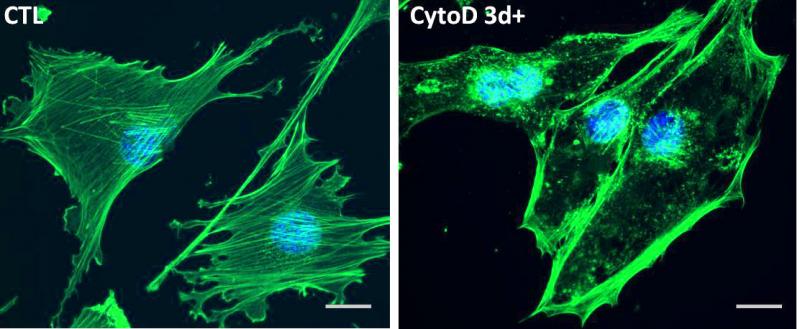Imagine you have a bone fracture or a hip replacement, and you need bone to form, but you heal slowly – a common fact of life for older people. Instead of forming bone, you could form fat. Researchers at the University of North Carolina School of Medicine may have found a way to tip the scale in favor of bone formation. They used cytochalasin D, a naturally occurring substance found in mold, as a proxy to alter gene expression in the nuclei of mesenchymal stem cells to force them to become osteoblasts (bone cells).
By treating stem cells – which can become fat or bone cells — with cytochalasin D– the result was clear: the stem cells became bone cells. Further, injecting a small amount of cytochalasin D into the bone marrow space of mice caused bone to form. This research, published in the journal Stem Cells, details how the scientists altered the stem cells and triggered bone growth.
“And the bone forms quickly,” said Janet Rubin, MD, senior author of the paper and professor of medicine at the UNC School of Medicine. “The data and images are so clear; you don’t have to be a bone biologist to see what cytochalasin D does in one week in a mouse.”
